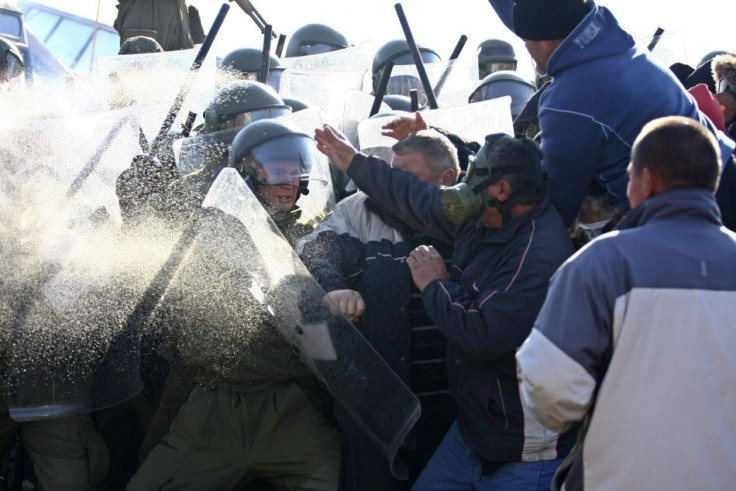Kosovo Independence 4th Anniversary: Tough Challenges Ahead as Serbia Conflict, EU Entry in Focus

Kosovo celebrates its fourth anniversary of Unilateral Declaration of Independence (UDI) on Feb. 17. Even after four years of its UDI, the country with Albanian majority is still to make any headway towards development or in ensuring stability in the region. The biggest challenge it faces includes its conflict with Serbia, which doesn't recognize Kosovo's independence and the resistance from several of the European Union countries that oppose its inclusion in the Union.
The territorial conflict between Serbia and Kosovo is in fact damaging the prospects of both the countries joining the European Union and thus their merger into the mainstream of development in the region.
The discord between Serbia and Kosovo is complex because of its violent history of ethnic and political conflicts. Wounds from the past clashes are fresh in the memory of the citizens of both countries, making any kind of reconciliation a remote possibility.
At present realizing that the stakes are very high for the two countries, the Governments are engaged in peace talks to resolve the differences.
However, the issues are not as simple as they seem, because in Kosovo there exists a huge mistrust between the majority Albanians and the Serbs. There are around 120,000 Serbs in Kosovo and majority of them are settled in the Serbian-controlled provinces in Northern Kosovo. Serbs in Kosovo along with Serbians oppose the Kosovo UDI.
In a recent referendum on the issue of Kosovo's independence from Serbia, an overwhelming majority (99.7 percent) of Serbs in the Northern provinces rejected the UDI and Pristina government's rule over them. Though the referendum doesn't affect the status quo, it is an indicator of the resentment in Kosovo Serbs against Pristina's Albanian majority Government.
Eighty-six countries in the world have recognized the UDI of Kosovo, including the United States. But Germany, China, Brazil, India, Israel and several countries in European Union have refused to recognize Kosovo as a Republic. For these nations, which are struggling with secessionist movements within their sovereignty, accepting the Kosovo UDI is like opening a hornet's nest in their own countries.
Though Serbia has always maintained that Kosovo is a part of it, it is in a real fix now because the key to the European Union exists in finding a peaceful solution to the Kosovo issue.
For maintaining stability in the region and to improve its deteriorating economic and unemployment woes, Serbia needs to join the European Union at the earliest. But the catch here is it's difficulty in approving the Kosovo UDI. It is not easy for the Serbian Government to agree on any resolution that results in its parting with Kosovo. For the Serbians who believe Kosovo is the cradle of their civilization, losing it won't be acceptable in any context.
For the government which is facing elections this year, it is suicidal to accept the independence of Kosovo, as the citizens would refuse to accept any such resolution. Meanwhile a delay in solving the economic and developmental issues in the country would also spell peril for the government as resentment among the public would cost them the re-election.
On the other hand, Kosovo also faces the same problem as it still hasn't been able to convince all the European Union countries to accept its independence. Many of the European countries have serious objection in accepting the Muslim-majority Pristina government as they fear it would lead to escalation of radical movements in the region.
The government has also so far failed to integrate the minority Serbs into the mainstream or take control of the Serbia-controlled northern Kosovo. With mistrust at its peak, as the referendum results indicate, it will be a herculean task for the Kosovo government to bridge the differences between its ethnic groups.
The only feasible solution that exists now is to continue the peace talks and create an atmosphere of trust among both the governments and its citizens, so that stability and peace prevail in the region.
© Copyright IBTimes 2024. All rights reserved.






















